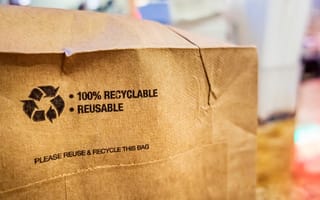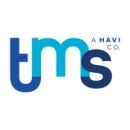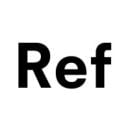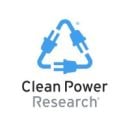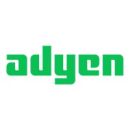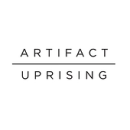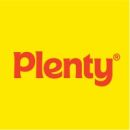Prioritizing sustainability means minimizing environmental harm and remaining conscientious about natural resource consumption. Businesses that are mindful of how their operations affect the natural world may incorporate manufacturing practices that reduce carbon emissions or make products out of biodegradable materials. The following are some companies that are sustainable, placing actions intended to preserve the environment at the core of their overall mission.
Companies That Are Sustainable
- tms
- Upside
- Spotnana
- Reformation
- LanzaTech
- Ecobee
- Plenty
- Avocado
Companies That Are Sustainable
Halter develops solar-powered wearable technology for cows that allows farmers to track cows’ behavior and health. Its tech can be controlled through a mobile app, which allows users to manage grazing, feeding and fencing virtually. The company aims to build more advanced and sustainable farming practices.
Samsara is an IoT solutions provider working to enhance safety, sustainability and efficiency across industries ranging from construction to passenger transit. Its portfolio includes solutions designed to help businesses reduce their environmental footprints. For example, Samsara’s technology allows customers to monitor and report on carbon emissions, enabling them to identify and eliminate waste based on analysis of real-time data. The company’s annual impact report shows its AI-powered platform supported customers in collectively reducing more than 3 billion pounds of CO2 emissions in fiscal year 2025.
Strategic consulting firm tms offers technology, marketing and sourcing solutions to help brands like T-Mobile, Samsung and adidas reach customers. With the knowledge that 80 percent of a product’s environmental impact is decided during the design process, the company takes an evidence-based approach in the selection of materials and manufacturing processes for each new project.
AMP creates and manufactures robotics for the recycling industry. It uses AI in recycling operations by training it to recognize specific objects in recycling facilities. The company aims to make recycling more sustainable, scalable, cost-effective and efficient.
Energy CX is an energy brokerage that offers data-driven solutions with the goal of helping client companies navigate the energy landscape. It aims to help users reduce cost, optimize energy usage and improve sustainability through other solutions and strategies. The company has services that include ongoing management, data-backed decisions and energy purchasing.
Business travel tech company Spotnana works with companies to plan, book and facilitate corporate travel. In addition to providing travelers actionable information on the carbon costs of various travel options, part of Spotnana’s sustainability commitment is a partnership with a company that provides carbon removal via the Bio Carbon Capture and Storage process, enabling client companies to offset their carbon footprints.
Avocado makes the eponymous Avocado Green mattress and associated products like pillows and mattress toppers that are “beyond organic,” meaning they are not only certified organic, but also Greenguard Gold certified by UL for low chemical emissions and free of off-gassing materials. To keep its mattresses and pillows eco-friendly, Avocado uses biodegradable materials like natural rubber latex, organic wool and organic cotton.
Reformation is a clothing brand that leads with sustainability. Its roots are in upcycling, and it has a waste-proof, limited-run production model, as well as a transparent supply chain and a clear, easy to interpret environmental impact scale that it uses to rate every garment it sells. That scale, known as the RefScale, measures how much CO2 and water are saved in the manufacturing of each piece of clothing in comparison to the industry standard.
LanzaTech makes carbon recycling technology that takes emissions from mills, landfills and other known polluters and turns them into usable energy like CarbonSmart ethanol and EVA foam. The company operates three commercial plants in China and a waste-to-ethanol facility in Japan. It also partners with prominent companies in a wide range of applications, from ZARA in fashion to Unilever in cleaning products to Coty in fragrance.
Upside is a retail software company with an app that grants cashback awards to customers of a wide variety of brick-and-mortar businesses. It runs billions of dollars in commerce through its platform each year. Since its founding in 2016, the company has committed 1 percent of all revenue to sustainability initiatives like carbon offsetting and food rescue. In the first year of its food rescue program, the platform rescued 60,000 pounds of food.
Sunday is a lawn care company that brings the subscription-service model to the home and lawn maintenance space, home-delivering customized boxes with all the supplies and tools a homeowner needs to maintain their lawn. In its management of yards, the company’s approach prioritizes sustainability with a “less is more” strategy that errs on the side of using fewer resources like water, fertilizer and mowing.
Ecobee is a home tech company that makes smart home products to increase energy efficiency. Its mission is large-scale energy savings, and the company has delivered more than 27 terawatt hours of savings to date. Its primary products are smart devices such as thermostats and door and window sensors that alert residents when they’re open, allowing homeowners to lower their energy usage without compromising comfort or lifestyle.
Munchkin develops consumer products for babies, toddlers and parents. It offers products for bathing, diapering, travel, feeding, sleep and health, as well as a nursing-parent support line. In the first half of 2024, the company says it planted five million trees through The Seedling Project and saved 97.5 metric tons of CO2 emissions by consolidating to a single warehouse.
Clean Power Research is based on sustainability and says its mission is “a clean-powered planet by pioneering state-of-the-art, analytical methods.” It builds software solutions that can manage building electrification and support solar power plant operations. The company works with 80 utility providers across more than 200 entities.
Fintech company Adyen’s business solutions include capabilities for online payments, customer authentication and card issuing. Adyen invests in initiatives meant to have a positive environmental impact, such as its partnership with CarbonX to support carbon removal projects. Adyen also publishes a yearly overview of its greenhouse gas emissions as a way to promote environmental accountability.
Artifact Uprising enables users to create beautiful photo books, wedding albums, calendars, framed prints, holiday cards and invitations. The service offers many themes and styles for special events, and each item can be personalized or selected from pre-made designs. The company’'s wood calendars are made from reclaimed fallen pine, and its hardback books contain recycled fibers.
Plenty is an agtech company that uses indoor vertical farming facilities to grow greens without pesticides, using a minimal amount of land and water. Because the footprint of a Plenty farm is smaller than a traditional agricultural site, the company can place farms closer to the markets that purchase its greens, reducing the carbon footprint associated with transportation while delivering fresh local produce at an industrial scale.
Jabra Hearing offers medical-grade over-the-counter hearing aids for convenient, personalized hearing care. Its Enhance product is a hearing enhancement earbud that is priced at about half of the national average for similar products. The company says it focuses on decarbonization, sustainable design and supply chain responsibility.
Liberty Mutual is an insurance company serving individuals and families, as well as businesses across industries like healthcare and technology. In the area of sustainability, Liberty Mutual says it aims to “advance resilience and inclusive growth.” Liberty Mutual’s 2023 Purpose & Impact Report shows the company invested $1.23 billion in renewable energy generation and works to further climate risk education through the work of its Climate Transition Center.
SteelSeries provides gaming software and hardware, including keyboards, gaming mice, mousepads and headsets. It is part of the GN Group that works to set science-aligned emissions reduction targets to play its part in keeping global warming below 1.5 degrees. The company says it has set targets to reduce operational emissions by 80 percent and value chain emissions by 25 percent by 2030.
Enterprise telecom company Optimum provides internet, phone and cable television services to homes and businesses all over the U.S. Optimum’s environmental stewardship and sustainability initiatives include using renewable energy, starting energy efficiency projects, cutting down on the carbon footprint of its products and packaging and developing fiber cables for residential use.
AutoStore reimagined the modern warehouse by engineering robots that can perform critical tasks like moving goods from place to place for packaging and assembly. In grocery, retail, healthcare and industrial warehouses, AutoStore robots and systems take much of the burden of labor from human team members, thereby improving efficiency and safety as they work. The company’s efforts toward sustainability include relocating warehouse facilities to decrease the need to transport goods.
Scythe Robotics makes autonomous lawn mowing machines. Its robots are built for use in landscaping fleets, and are equipped with leading-edge technology like computer vision, 3D mapping, semantic awareness and AI that perceives obstacles and terrain details. Scythe robots use proprietary high efficiency blades to allow longer duty cycles and reduced turbulence, which decreases noise pollution and improves worker health and safety. Powered by electricity, Scythe’s mowers are far more environmentally friendly than gas-powered mowers.
Work & Co is a digital products and experiences agency that creates technology and design assets for clients that include Apple, IKEA, Mercedes Benz, Disney, Lyft and Nike. It specializes in building bespoke digital solutions for brand problems, and aims to work across project management, technology and design to offer a uniquely streamlined approach to digital strategy. The company’s commitment to sustainability drove them to partner with a top carbon emissions strategist to assess its footprint and project avenues for continued carbon offsetting. Work & Co has been carbon neutral since 2020.

